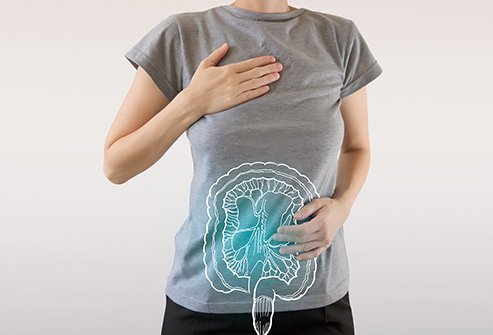Are Colon Cleansers Safe?
What is colon cleansing?

Colon cleansing dates back to ancient times. It's recently become popular. But is it safe for you?
Your colon is also known as your large intestine or large bowel. Part of your digestive system, it breaks down food and moves waste to your rectum.
Colon cleansing is usually done to prepare for medical procedures such as a colonoscopy. But some alternative medicine practitioners say that colon cleansing can detoxify your body.
Colon cleansing can be done using colon-cleansing products or colonic irrigation (colonic hydrotherapy).
In colonic irrigation, up to 60 liters of fluid is pumped through your rectum via a tube. This is repeated several times. This is not like an enema, which runs a much smaller amount of fluid one time into your colon.
A colon cleanse is also not the same as a colonoscopy. During a colonoscopy, your doctor examines your colon to check for abnormalities, and screens for colon cancer. A long, flexible tube called a colonoscope is inserted into your rectum. This contains a tiny camera so your doctor can see the inside of your colon.
What are colon cleansers?
Colon cleansing products come in different forms. There are powders, teas, capsules, and laxatives. Some are taken orally, others inserted into your rectum. Many colon cleansers may contain:
- Coffee
- Enzymes
- Probiotics
- Sodium phosphate
- Herbs
- Psyllium
- Flaxseed
- Laxatives, such as cascara, licorice, and milk thistle
These colon cleansing products are often marketed as a way to:
- Lose weight
- Boost your energy levels
- Get rid of headaches
But experts say there’s little scientific research to show that colon cleansers actually have such benefits.
Colon cleansers: are they safe?
Colon cleansing products are less invasive than colonic irrigation. But even these colon cleansers are not safe. They may have side effects such as:
- Abdominal pain
- Cramping
- Vomiting
- Electrolyte disorders
The FDA and Federal Trade Commission say that some colon cleansers are not safe for you. They have taken action against some companies selling cleansing and detox products. Some products have potentially harmful or illegal ingredients. Other products were marketed with false claims to cure serious diseases.
Colonic irrigation involves even more risks. If equipment isn’t sterilized properly, infections can pass from patient to patient. Other risks include:
- Cramping
- Bloating
- Vomiting
- Nausea
- Kidney failure
Some herbs used in colon cleanses have also been linked to liver toxicity and aplastic anemia.
There have also been case reports of serious complications such as:
- Air bubbles in artery or vein (air emboli)
- Inflammation of the colon's inner lining ( colitis)
- Pus-filled mass in your pelvis
- Tears in the rectum
- Deaths due to amebiasis, an infection of the intestines caused by a parasite
The FDA hasn’t approved any devices for non-medical colon cleansing. It also doesn’t regulate additives used for colon cleansing.
Colon cleansing is riskier in people with a history of:
- colon surgery
- severe hemorrhoids
- gastrointestinal disease
- heart disease
- kidney disease
How your body naturally detoxifies
Toxins can get into your body when you breathe, eat, drink, or through your skin. Toxins are also made in your body during metabolism. These toxins are transformed and removed from your body when you:
- Sweat
- Urinate
- Defecate (pass stools)
- Breathe
Also, not all bacteria are bad. Your gastrointestinal system needs beneficial bacteria for digestion. Colon cleansing can disturb the balance of good bacteria and cause more problems down the road.
Precautions to take
If you’re still interested in doing a colon cleanse, talk to your doctor about it. This is important if you have any health conditions or take medications.
Here are other precautions to take before a colon cleanse:
- Know what herbs and additives are used.
- Drink water before and after.
- If you’re doing colonic hydrotherapy, make sure your practitioner uses disposable equipment.
- Consider improving your colon health naturally instead
How to improve your colon health
Try these ways to improve your colon health instead:
- Drink plenty of water
- Eat five to nine servings of vegetables and fruit every day
- Eat a high-fiber diet to keep your bowels regular
- Eat berries, garlic, onions, leeks, green tea, and cruciferous vegetables like Brussels sprouts and broccoli.
- Avoid red meat.
- Eat naturally fermented foods to boost your gut health. These include kimchi, yogurt, kefir, and sauerkraut.
- Exercise regularly
- Don’t smoke or drink alcohol. Tobacco and alcohol use have been linked to an increased risk of colon cancer.
- Get regular colonoscopies to identify and remove any precancerous polyps.
